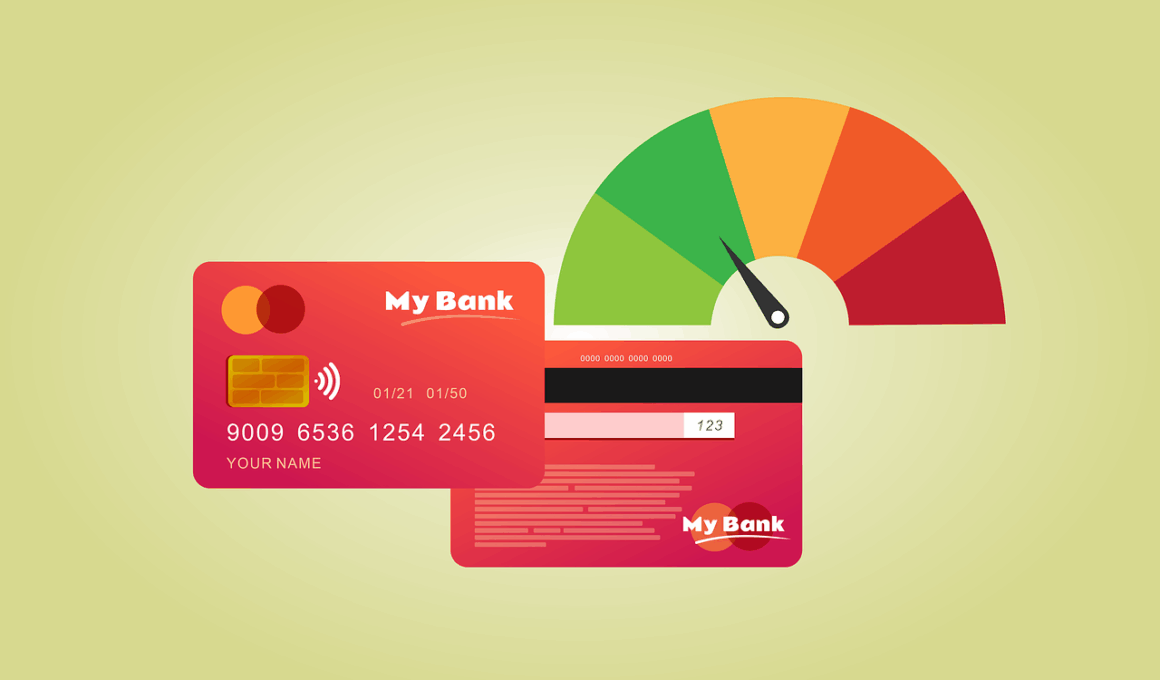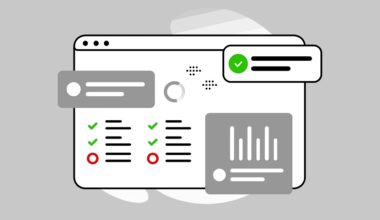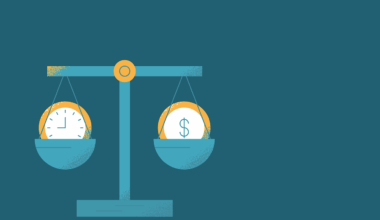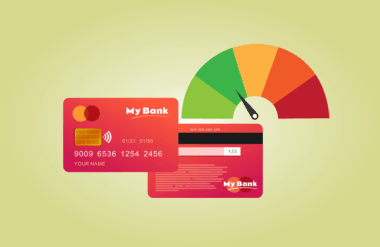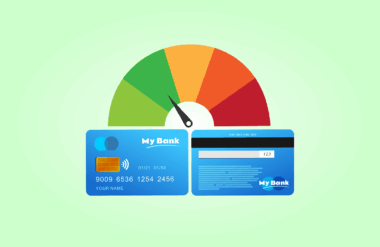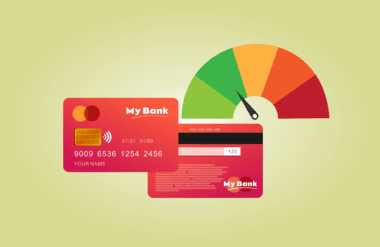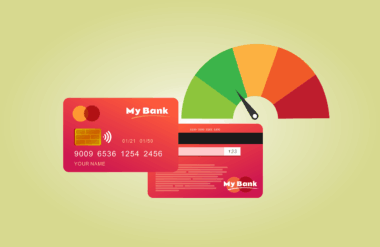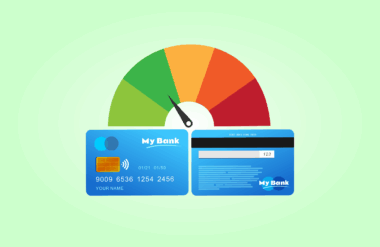Understanding Credit Scores for Self-Employed Individuals
Credit scores are crucial for self-employed individuals as they impact opportunities to secure loans and favorable interest rates. Many assume traditional scoring methods apply uniformly; however, the unique financial circumstances of freelancers require tailored assessments. Lenders typically rely on a variety of credit scores, which reflect different aspects of financial health. These scores, including FICO and VantageScore, provide insights into creditworthiness, helping lenders assess risk levels. Understanding how these scores are calculated is key for self-employed individuals. Various factors influence scores, such as payment history, credit utilization, lengths of credit history, types of credit accounts, and new credit inquiries. For self-employed individuals who might have irregular income streams, managing these factors becomes paramount. Timely bill payments can significantly boost credit scores, while maintaining low credit balances is crucial for sustaining high scores. Additionally, it is wise to review personal credit reports regularly for errors, as inaccuracies may negatively affect credit standing. A high credit score can lead to better financing options. Therefore, self-employed individuals must actively engage in maintaining strong credit scores for enhanced financial opportunities. It’s an ongoing process demanding attention and proactive strategies.
Various types of credit scores exist, and understanding their differences is critical for self-employed individuals. FICO scores are among the most commonly used, with scores ranging from 300 to 850. This model heavily weighs payment history and amounts owed, highlighting the importance of consistent payment practices. On the other hand, VantageScore is another widely utilized model, which has a similar range but features a slightly different scoring approach. Specifically, VantageScore takes into account a broader view of an individual’s financial behaviors, including recent credit lines and payment patterns, which can benefit those with less conventional income sources. Moreover, educational scores can be accessed through credit bureaus, providing individuals insights into how specific actions could improve their scores. These educational scores do not influence lending decisions but can still provide valuable guidelines. Self-employed individuals should familiarize themselves with the various scoring models available, as this knowledge helps tailor financial strategies better suited for their unique situations. Further, potential lenders might have preferences for specific scoring models that could directly affect their lending decisions. Therefore, understanding these nuances can empower self-employed individuals to present themselves credibly to financial institutions.
Importance of Payment History
Your payment history constitutes one of the most influential components of any credit score. For self-employed individuals, consistently making timely payments on credit accounts and bills is essential. Missing payments not only incurs late fees but can also lead to significant credit score declines. Establishing a habit of prompt payments can create a robust credit history over time. This positively impacts your credit score, which is crucial for securing loans and favorable credit terms. Many self-employed individuals experience fluctuating incomes, making budgeting essential for ensuring timely payments across all dues. Additionally, some might find it beneficial to set up automatic payments for recurring bills, as this minimizes the chance of forgotten deadlines. A solid payment history reflects responsibly managing finances, appealing to lenders assessing your reliability. Furthermore, it can enhance one’s chances of qualification for higher loan amounts or lower interest rates in the future. Strengthening this aspect of your credit profile requires diligence, consistent attention, and proactive planning to align payments with your income flow. Establish good payment habits, and over time, those efforts will significantly reflect in your credit scores and overall financial prospects.
Credit utilization also plays a pivotal role in determining one’s credit score. For self-employed individuals, managing credit utilization can be challenging due to income variability. Generally, it’s advised to maintain utilization below 30 percent of available credit. High utilization can negatively impact credit scores, suggesting financial distress to lenders. To better manage one’s credit utilization rate, self-employed individuals can adopt various strategies. One effective approach is to request increased credit limits. By doing so, you decrease the percentage of utilized credit relative to the available credit limit. Alternatively, staying disciplined about spending habits helps maintain a low utilization ratio. Furthermore, utilizing credit cards strategically for necessary business expenses while keeping balances low can boost credit score health. Reviewing monthly statements for any unnecessary charges can also keep credit utilization in check. Additionally, diversifying credit types, such as mixing installment loans with revolving credit, may contribute positively to credit scores. All these elements together create a holistic approach to managing credit. Maintaining clarity regarding your financial limits can help self-employed individuals improve credit scores while securing better financial solutions tailored to their professional lifestyle.
Length of Credit History Matters
The length of one’s credit history is a significant factor in credit scoring models. A longer credit history usually indicates experience in managing credit and signifies reliability to lenders. However, self-employed individuals might have shorter credit histories if they recently transitioned to freelance or entrepreneurial activities. To mitigate this issue, it’s essential to maintain older accounts, even if they’re not actively in use, as they contribute positively to credit history length. It’s often a common misconception that closing old accounts can benefit one’s credit score, but this is untrue. Keeping these long-standing accounts open can strengthen your credit profile by demonstrating a responsible credit utilization track record. Additionally, if self-employed individuals would like to build their credit history, opening new credit lines might seem appealing, yet caution must be exercised. While new accounts can mix credit types, aggressive opening of too many credit lines in a short period may lead to hard inquiries that negatively impact scores. Therefore, balance new credit applications with the strategy of securing longevity in existing accounts. This approach ensures that self-employed individuals maintain a robust credit history crucial for favorable lending prospects.
Understanding various credit inquiries, particularly hard and soft inquiries, is also imperative for self-employed individuals. Hard inquiries occur when lenders check credit reports as part of loan approval processes, which can slightly lower one’s credit score temporarily. Typically, multiple hard inquiries occurring within a short time frame can accumulate, indirectly suggesting financial distress. Conversely, soft inquiries happen without affecting one’s credit score and generally occur during routine checks or when individuals check their credit reports. Self-employed individuals should strategize when to apply for credit and optimize the timing of those applications for funding. If multiple loans are necessary, plan those applications for the same period to limit the negative impact of hard inquiries on credit scores. Additionally, being proactive in monitoring credit reports can uncover any unauthorized hard inquiries that should be disputed. Regularly reviewing one’s credit profile can help maintain awareness of any changes and their implications for your credit scores. This knowledge and insight empower self-employed individuals to make informed financial decisions, ensuring that their credit health remains sturdy despite possible fluctuations in income.
Building and Maintaining Credit
For self-employed individuals, building and maintaining good credit scores may require a different strategy compared to traditional employees. Since income may vary, budgeting becomes essential. Establishing a robust budgeting framework allows managing expenses and ensuring that credit obligations are met promptly. Regularly tracking income and expenses can also provide clarity on financial realities, ensuring timely decisions regarding investments or credit applications. Furthermore, self-employed individuals should prioritize keeping detailed records of income to streamline documenting finances for potential creditors. Having consistent records will be invaluable when applying for personal or business loans, providing lenders assurance of one’s track record. Additionally, self-employed individuals might consider establishing a separate business credit profile, which can delegate financial responsibilities and build credit in their organization’s name. This strategy promotes solid business credit without compromising personal credit stature. As part of a holistic credit management plan, self-employed individuals should regularly engage with financial advisors, ensuring that their credit strategy aligns with overall financial goals. These combined efforts facilitate a proactive approach to credit management that showcases a commitment to financial responsibility and lays a firm foundation for future endeavors.
In summary, understanding credit scores and their various components is essential for self-employed individuals seeking financial opportunities. Credit scores reflect not only personal financial behavior but also inform lenders about potential risks. By managing factors such as payment history, credit utilization, and the length of credit history, self-employed individuals can significantly enhance their scores. Moreover, familiarity with different credit scoring models can empower individuals to make informed decisions regarding credit applications. Active monitoring of credit reports can also prevent errors that may hinder financial opportunities. Emphasizing budgeting and record-keeping will further support sustaining strong credit profiles. Ultimately, self-employed individuals have the ability to cultivate healthier credit scores over time by following proven strategies. These strategies will lead to better financing options, enabling growth and resilience in their business ventures. With a solid credit foundation, attaining loans and favorable rates can be more achievable. Therefore, prioritizing credit management should be integral to self-employed financial planning. Maintaining and improving credit scores is an ongoing process, but with dedication and strategic action, substantial benefits await self-employed individuals in their financial journeys.
